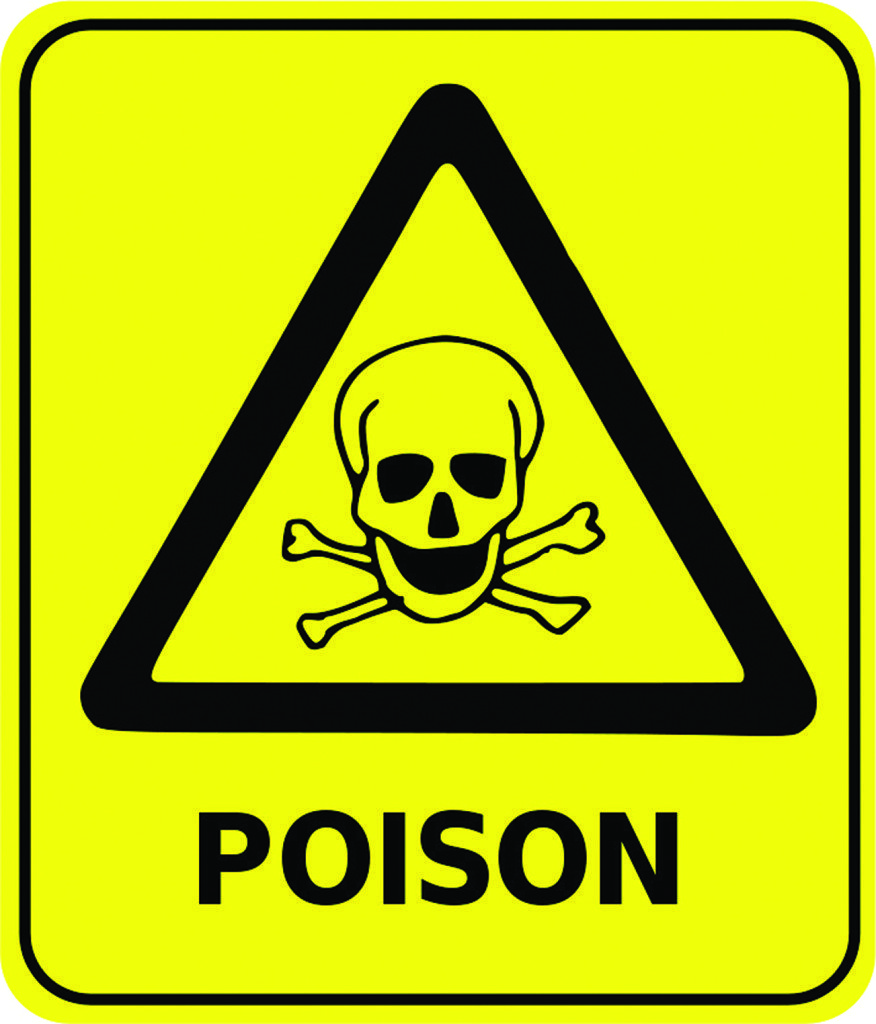 You may not realize it but there are many substances in your kitchen, backyard and garage that could cause serious harm if not stored or handled properly. National Poison Prevention Week, occurring between March 20-26, is dedicated to raising awareness on poison control and will highlight the measures one can take to ensure they are being safe when handling these substances.
You may not realize it but there are many substances in your kitchen, backyard and garage that could cause serious harm if not stored or handled properly. National Poison Prevention Week, occurring between March 20-26, is dedicated to raising awareness on poison control and will highlight the measures one can take to ensure they are being safe when handling these substances.
The South Nassau Communities Hospital verifies that an estimated 2 million poisonings are reported each year. The hospital also states that more than 6,000 people have died and 300,000 suffer from disabling illnesses annually as well.
The hospital’s chairman of the department of emergency medicine, Dr. Joshua Kugler, said that prevention is key.
“I believe there is a good public awareness, however, complacency or inattentiveness of household guardians is what usually leads to accidents,” said Dr. Kugler.
Similarly, Dr. Victor Politi, president of Nassau University Medical Center, also specializes in emergency medicine and said that being aware of why poison control is necessary can help save lives.
“If you do ingest something that is basically toxic, it can make you very ill. It can cause internal problems. It could cause kidney failure…we could see damage to their lungs, from breathing in cyanide or smoke, or we could see brain damage. Or we could see just basic poisoning of a person’s body, killing them,” said Dr. Politi.

While the outcome of a poisoning can be frightening, Kugler said there are a number of things you can do to ensure your and your family’s safety. They suggest you keep all medicines and chemicals away from younger children. They also say it’s important to use child-resistant packaging and make sure all packaging is securely closed after its use. For adults, keeping medicine in their original containers is vital. Label confusion can often lead to inappropriate usage.
Installing carbon monoxide detectors is another way to prevent poisoning. Many household items and materials such as gas, oil, kerosene, and wood can potentially cause carbon monoxide poisoning.
“A lot of the everyday items that you don’t think can harm you can; education is key in prevention,” said Dr. Polito. “Things we use in our yards. Long Island has beautiful lawns. Everybody has pools. All of those chemicals are very, very toxic. We may not be thinking about that in the summer but I’m sure if you look in your shed or your garage, you probably have these chemicals in there.”
The South Nassau Communities Hospital will be gearing up for Poison Prevention Week with an information session.
“We are planning an informative table in the hospital atrium during Poison Prevention Week,” said Kugler. “It will be manned by the nurses from pediatrics and the emergency departments. There will be free information and education about poison prevention and tips as well as materials and guidelines from the Health Resources and Services Administration.”
The American Association of Poison Control Centers (AAPCC) is also trying to spread preventive information regarding poison control. AAPCC Director of National Outreach Krista Osterthaler said that the “AAPCC will be engaging in multiple traditional and social media efforts…”
“It’s important to remember that not all poisonings take place via ingestion, or swallowing. People can also be poisoned via the eyes—ocular, lungs—inhalation, skin-dermal and other ways,” she added.
If you suspect poisoning call 911. For non-life threatening incidents and information call AAPCC at 800-222-1222.



































